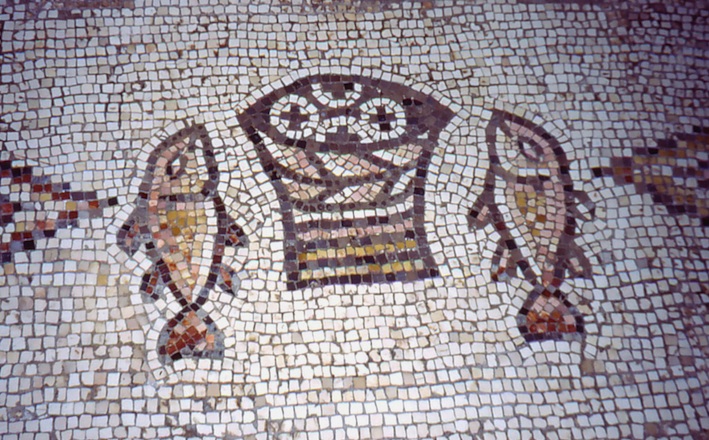Commentary on Genesis 32:22-31
This week’s text continues the story of Jacob.
In Genesis 30, Leah, Rachel, and their maids produced 11 healthy sons and one daughter. Jacob asks Laban’s permission to return to his country with his family (Genesis 30:25). After some additional trickery by both men, Jacob departs on good terms with Laban. As Jacob gets closer to Canaan, first he sends gifts (32:13-21) and then sends messengers to his estranged brother Esau. The messengers return saying Esau is riding to meet his brother with 400 men. Jacob is fearful, especially since Esau’s last words to Jacob are a death threat (27:41). Jacob sends his family and all he has in front of him, placing them between him and Esau (verses 22-24) leaving Jacob on the far side of Jabbok River, alone with his fears.
Today’s lectionary text is mysterious. “Jacob was left alone, and a man wrestled with him until daybreak” (verse 24). Was it a dream, as 28:10-22? Was it a metaphor for his fear or his brother? Was it an angel or God? The text never identities for the “man.” However, we are uncomfortable with not knowing the man’s identity, so we speculate. But this speculation leads to no firm answers. If the identity of the “man” is not disclosed, maybe his identity is not the point of the story, and we need to search elsewhere. So what else do we learn from this narrative?
First, the encounter left Jacob wounded: “When the man saw he did not prevail against Jacob, he struck him on the hip socket; and Jacob’s hip was put out of joint as he wrestled with him” (Genesis 30:25). We do not know if the injury was permanent, but the text notes he was limping as he left the place (verse 31). The encounter left a mark, a remnant that Jacob carried away from the place. We also learn Jacob did not give up the fight, the “man” did. Jacob was tenacious and at daybreak, he “won” the match by refusing to let go.
Life is sometimes like that. Things happen that cannot be rationalized or easily understood. We survive by nothing more elegant than not giving up. My friend’s husband died recently. She has never lived alone in her life. She is getting through the days simply by getting up and getting dressed. She is wrestling with the connected mysteries of love, God’s will, long-term life together, and grief. Most of us have had seasons in our lives where we too fight with the mysteries of life. We do not know if Jacob’s injury was permanent, but the text notes he was still limping when he left (Genesis 32:31). We carry the injuries of our struggles with mystery. Every loss, every divorce, every cancer diagnosis, every death of someone we love leaves its mark. Just like Jacob, we will leave with a limp. In preaching, we can aid folks to see that, like Jacob, sometimes all we can do is hang on. Like the text, the identity of the mystery is not needed, we understand the struggle is with life and God. Jacob struggles alone that night. Struggles are often like that also. We can share our burdens and fears with each other, but ultimately each of us must come to terms with the mystery of God and life.
At daybreak, Jacob refused to let go unless he was blessed. The man answered, “You shall no longer be called Jacob, but Israel, because you have striven (or struggled) with God and humans and have prevailed.” Think about that for a minute. We think of the name “Israel” as a noun, a name, but it means much more. It is not only about Jacob, but all of us. We are to grab the mystery of God and hang on, even when we are tired, or in pain, or have doubts. We must fight for the relationship we share with God. Sometimes that means a confrontation with God. Yes, we can be angry at God, and we can tell God we do not understand how the world works. By being honest, we are struggling to hang on in the mysterious times when the world or God’s methods or God’s kingdom does not make sense. Remaining faithful throughout our lives sometimes takes work and perseverance. This is a preaching opportunity to reflect on our side of our relationship with God. Faith is not just a gift from God; it is a lifelong pursuit of God for us and us for God. We may never have the complete answers but in the struggle to hang on to faith and God, we become stronger, and we grow.
We live in a culture that celebrates winners, those that defeat the other. They appear to defeat their doubts and losses. But if the truth is named from the pulpit, these wins are a deception. In life, often all we can do is hang on. We cannot defeat grief or heartbreak; they will leave a mark. We must be like Jacob and refuse to let go of God until a blessing provides new insights that will once again transform us. Just as God fights for us, sometimes we must fight our questions and doubts and our pain and refuse to let go until we are blessed enough to continue on this journey with God. Today if we dare, we can lift up and even celebrate our struggle for a relationship with God and the mysteries of life. Not as a platitude, but by remembering God does not give up on us, and it is our job not to give up on God. The Christian life is sometimes difficult. Jacob was far from perfect, but he was faithful. In this text, he does become a role model, not of moral perfection, but as the one who wrestled in the night and did not surrender. His new name “Israel” is a lesson worth learning.


August 6, 2017